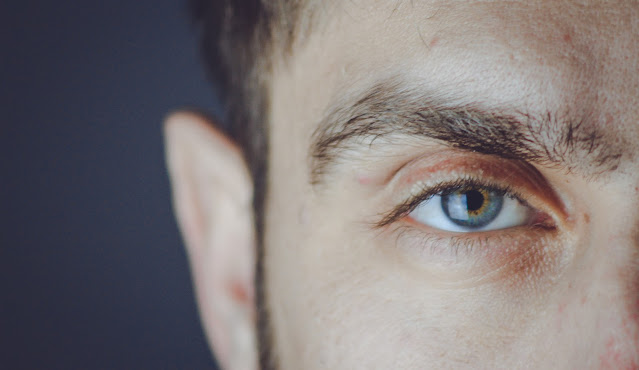As we spend more time on our electronic devices, our eyes are exposed to an increasing amount of blue light. Blue light is a type of visible light that has a shorter wavelength and higher energy than other colors of light. While exposure to blue light is necessary for our health and wellbeing, excessive exposure can lead to eye strain and other health issues. In this blog post, we will explore the concepts of light, eye strain, and Computer Vision Syndrome (CVS), and provide tips on how to protect your eyes from blue light.
Light is an essential part of our daily lives, and it comes in various forms, including natural light from the sun and artificial light from electronic devices. Blue light is a type of light that is emitted by electronic devices such as computers, smartphones, and tablets. While exposure to blue light is necessary for our health and wellbeing, excessive exposure can lead to eye strain, headaches, and other health issues.
Eye strain is a common issue that occurs when our eyes are overworked or fatigued. It can cause discomfort, headaches, and other symptoms that can interfere with daily activities. One of the primary causes of eye strain is excessive exposure to blue light, which can cause digital eye strain or Computer Vision Syndrome (CVS).
CVS is a condition that occurs when the eyes are exposed to digital screens for an extended period. The symptoms of CVS can include eye strain, headaches, dry eyes, blurred vision, and neck and shoulder pain. While CVS is not a serious condition, it can be uncomfortable and can interfere with daily activities.
Here are five tips to protect your eyes from blue light and prevent eye strain and CVS:
Adjust the brightness of your screen: Reducing the brightness of your screen can help to reduce the amount of blue light that your eyes are exposed to.
Take frequent breaks: Taking frequent breaks from your screen can help to reduce eye strain and prevent CVS. The 20-20-20 rule is a good guideline to follow: every 20 minutes, take a 20-second break and look at something 20 feet away.
Limit your exposure to blue light: You can limit your exposure to blue light by using a blue light filter on your electronic devices or wearing blue light blocking glasses.
Blink more often: Blinking helps to keep the eyes lubricated, which can help to reduce dry eyes and prevent eye strain.
Practice good ergonomics: Position your screen at a comfortable distance and angle to reduce neck and shoulder strain.
Blue light blocking glasses are specially designed glasses that block or filter out blue light. While there is some evidence that they can help to reduce eye strain and prevent CVS, more research is needed to determine their effectiveness.
In conclusion, excessive exposure to blue light can cause
eye strain and other health issues. However, there are several ways to protect
your eyes from blue light, including adjusting the brightness of your screen,
taking frequent breaks, limiting your exposure to blue light, blinking more
often, and practicing good ergonomics. By following these tips, you can reduce
eye strain and prevent CVS, making it easier to work or play on your electronic
devices without discomfort.


Comments
Post a Comment
If you have any query related to health , disease diagnosis and supplements, please let me know